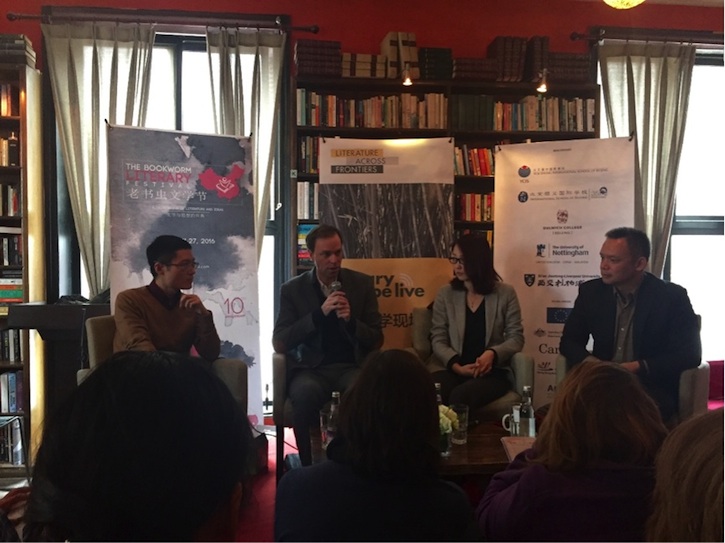
Two years ago Premier Li Keqiang declared a “War on Pollution” during opening remarks at the March 2014 National People’s Congress meeting. Has air quality improved since then? Is the government sincerely moving forward with meaningful policy, or is any progress merely a result of the current economic slowdown?
These were some of the big questions discussed by Paulson Institute Associate Director of Research Anders Hove and others on a panel moderated by New York Times Bureau Chief Edward Wong at the annual Bookworm Literary Festival in Beijing on March 15. Joining Hove on the panel were Greenpeace East Asia’s Deputy Program Director, Li Yan, and Managing Editor of China Dialogue, Ma Tianjie.
All of the panelists agreed that strict air pollution measures implemented by the government in 2013—shuttering small, heavily polluting factories, enforcing the implementation of “end-of-pipe” solutions such as scrubbers, and increasing renewable energy goals, for example—are starting to take effect.
“It is important to understand that, within the minds of the top leadership currently, the economic agenda is very much aligned with their environmental agenda,” said China Dialogue’s Ma, noting that this alignment is probably the biggest driver leading to actual results on the air quality front. “There is really an imperative to reform, particularly the heavy industry sectors, to reduce what they call surplus capacities in the steel sector, cement sector, glass sector, and coal sector.”
To accelerate progress on improving air quality, the government will have to revamp compensation and promotion systems for local officials, the panelists agreed. Otherwise, said Greenpeace’s Li, “local officials will still prioritize economic development over environmental quality improvements.” Though the government has signaled that environmental goals will be emphasized in key performance indicators for officials, it is not clear yet to what extent this is taking place.
Another challenge is economic incentives, which Li Yan called “the deepest root of China’s environmental challenges.” Tax incentives and misguided subsidies often encourage wasteful use of polluting energy and discourage local governments from increasing the use of renewable energy such as wind or solar.
Recently released statistics show that cross-provincial trade of electricity, which would help boost renewable energy use as well as encourage more efficient use of power, is flat or even declining in some regions. The reason: some provinces try to consume more power locally (to boost local use of coal and increase tax revenue) instead of import renewable energy from neighboring areas with a surplus of clean energy. “Local tax incentives and other incentives related to jobs…are really pressuring people in the local economy to increase local protectionism,” Paulson Institute’s Hove said.
While these and other challenges remain, the panelists stressed that the central government is committed to tackling air pollution, which, after all, is a serious political problem. They expressed optimism about China’s ability to find innovative solutions and business models in support of that goal.
One reason for optimism: many Chinese youth are choosing careers in new energy and environment topics. As one case in point, Greenpeace’s Li noted that Greenpeace’s Beijing office has more than 80 staff members, many of whom were born after 1990. “Ultimately, I think it’s that type of choice that will drive innovation in the long run,” Hove said.



